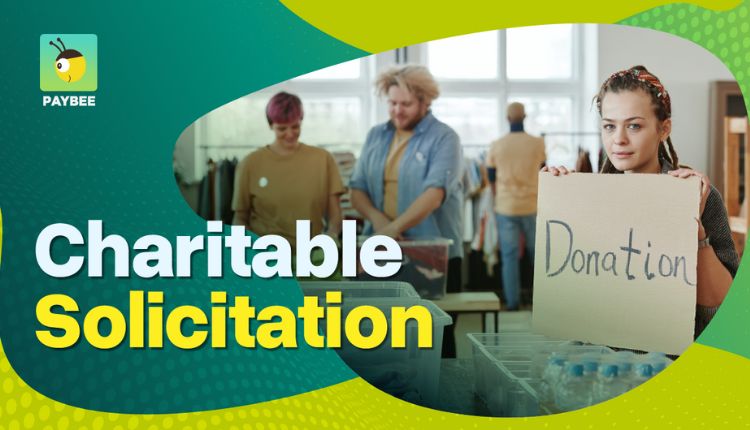Does Your Nonprofit Need a Solicitation License?
Nonprofit organizations operate under a complex web of regulations and requirements, each designed to ensure transparency, accountability, and compliance with legal standards. One such requirement that nonprofits often encounter is the need for a solicitation license. But does your nonprofit really need one, and if so, what are the implications?
Here is a closer look at solicitation licenses and what role they play in the nonprofit world. Read on to see if your nonprofit might need to have one and how you can effectively navigate the process of getting a solicitation license.
What is a Solicitation License and Why Would My Nonprofit Need One?
It’s essential to understand what solicitation entails in the context of nonprofit operations. Solicitation refers to the act of asking for donations, contributions, or support from individuals, businesses, or other entities.
This can take various forms, including direct mail campaigns, online fundraising appeals, special events, grant applications, and face-to-face solicitations. Regardless of the method used, solicitation activities may trigger regulatory requirements (such as obtaining a license) depending on the jurisdiction and nature of the fundraising efforts.
Whether or not your nonprofit organization needs a solicitation license to conduct these activities depends on the specific laws and regulations governing charitable solicitation in your state or locality. Many states require nonprofits to obtain a solicitation license or registration before engaging in fundraising activities within their jurisdiction.
These requirements are typically administered by the state attorney general’s office or other regulatory agencies tasked with overseeing charitable organizations.
Factors That May Influence Whether Your Nonprofit Needs a Solicitation License
There are a number of circumstances at play when it comes to determining whether your nonprofit needs a solicitation license. They can include the following.
State Regulations
Each state has its own laws and regulations governing charitable solicitation, including requirements for registration, reporting, and disclosure. Some states have specific thresholds or exemptions for small nonprofits or fundraising activities conducted on a limited scale.
It’s essential to familiarize yourself with the laws in your state and determine whether your organization meets the criteria for exemption or if registration is necessary.
Types of Solicitation
Certain types of solicitation activities may trigger licensing requirements, while others may be exempt. For example, in-person solicitations, telephone fundraising campaigns, and online crowdfunding efforts may be subject to different regulatory frameworks.
Understanding the specific rules and exemptions applicable to each type of solicitation can help your organization stay compliant.
Scope of Activities
If your nonprofit operates or solicits donations in multiple states or jurisdictions, you may need to comply with registration requirements in each location where you conduct fundraising activities. This can add complexity to the process and require careful coordination to ensure compliance with varying state regulations.
Compliance with Donor Disclosure Laws
In addition to registration requirements, nonprofits may be required to disclose certain information to donors, such as financial statements, programmatic impact, and use of funds. Failure to provide accurate and timely disclosures can result in legal repercussions and damage to your organization’s reputation.
How to Get Started with Getting a Solicitation License
Given the potential consequences of noncompliance, it’s crucial for nonprofits to proactively assess their obligations and take steps to comply with solicitation regulations. Here are some key considerations and best practices for navigating the process:
- Conduct Due Diligence: Start by researching the charitable solicitation laws and regulations applicable to your organization’s activities. Consult resources provided by state attorney general offices, nonprofit associations, and legal experts to understand the requirements in your state and any exemptions or thresholds that may apply.
- Evaluate Compliance Requirements: Assess whether your organization meets the criteria for exemption from solicitation registration or if registration is necessary. Consider factors such as the size of your nonprofit, the scope of your fundraising activities, and any specific exemptions available under state law.
- Complete Registration Forms:If registration is required, gather the necessary documentation and information to complete the registration forms or applications. This may include organizational documents, financial statements, IRS determination letter, board member information, and details about your fundraising activities.
- Submit Registration Materials:Follow the instructions provided by the regulatory agency to submit your registration materials, including any required fees. Be mindful of deadlines and ensure that your registration is submitted in a timely manner to avoid delays or penalties.
- Maintain Compliance: Once registered, stay informed about ongoing compliance requirements, such as annual renewals, reporting obligations, and updates to state regulations. Keep accurate records of your fundraising activities, financial transactions, and donor communications to demonstrate compliance with regulatory requirements.
- Seek Legal Advice: If you’re unsure about your organization’s obligations or how to navigate the solicitation registration process, consider seeking guidance from legal counsel or nonprofit experts with expertise in charitable solicitation laws. An experienced attorney can help you understand your responsibilities, assess your compliance status, and navigate any legal challenges that may arise.
Take the Next Step
While navigating solicitation licensing requirements may seem daunting, it’s a crucial aspect of nonprofit governance and accountability. By understanding the laws and regulations governing charitable solicitation, evaluating your organization’s compliance obligations, and taking proactive steps to meet those requirements, you can ensure that your nonprofit operates ethically, transparently, and in accordance with legal standards.
Ultimately, compliance with solicitation regulations helps build trust with donors, protect your organization’s reputation, and safeguard its long-term sustainability and impact in the community.




